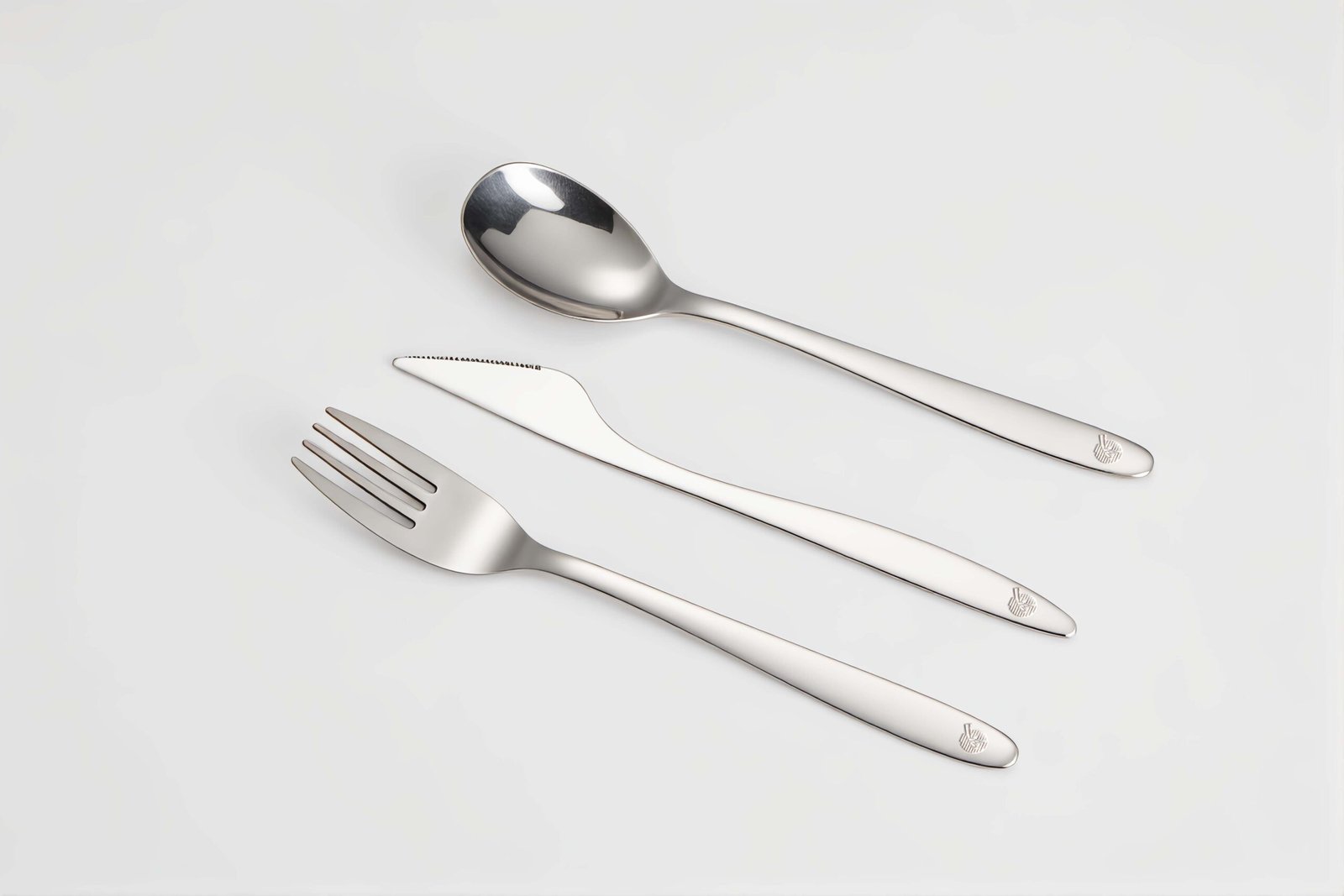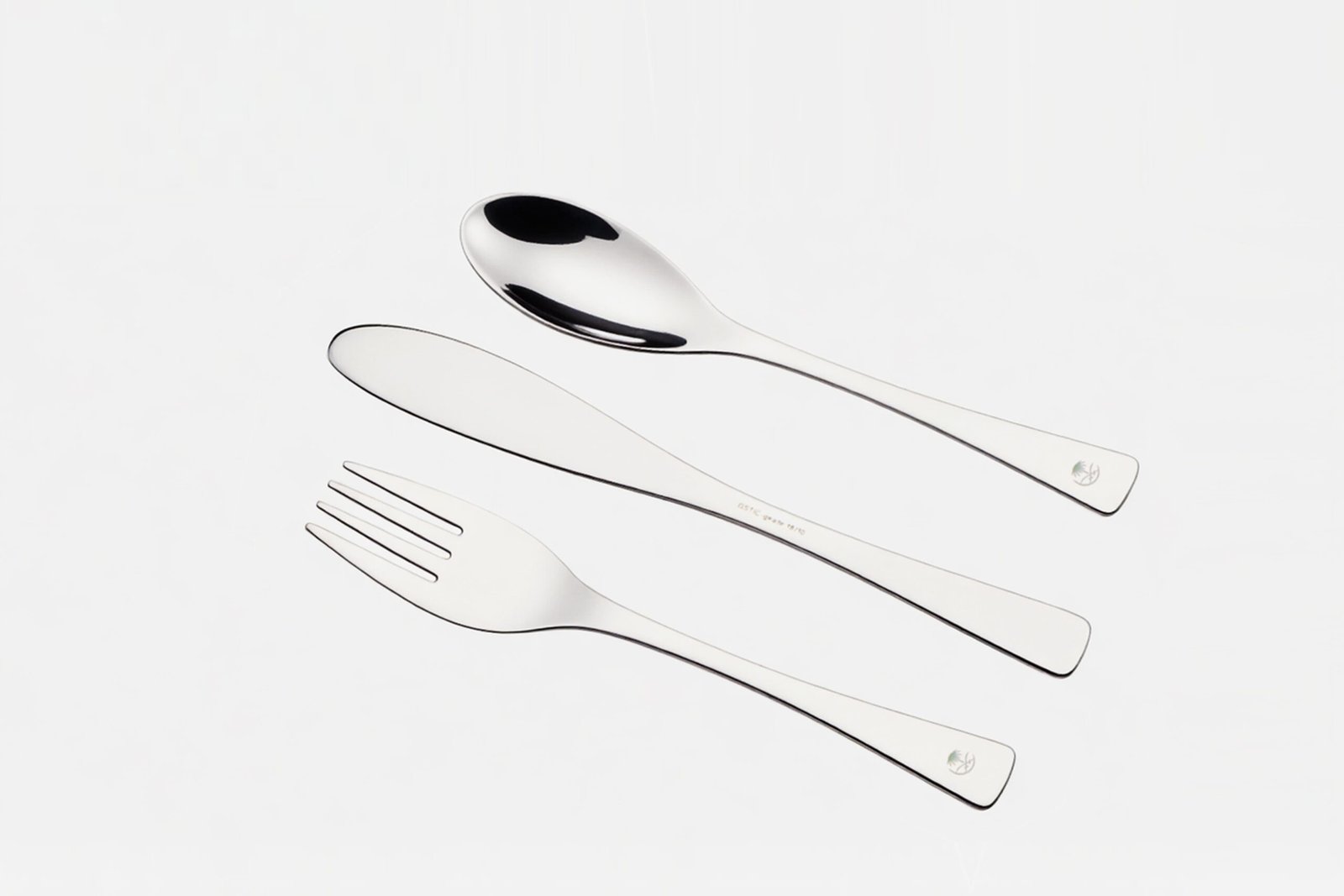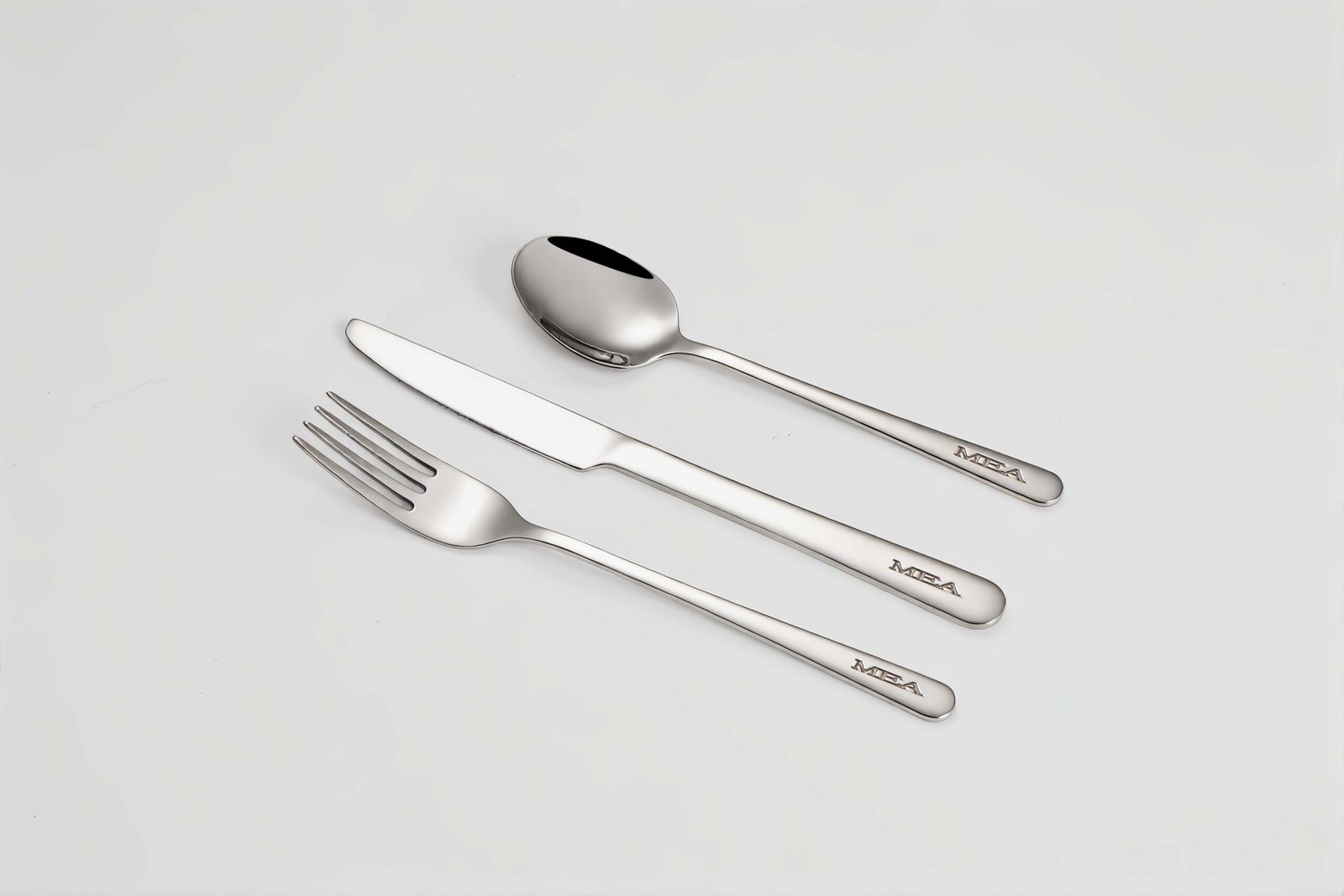Many people don’t think about the material in salad forks. They choose what is convenient instead of what is best. However, using the wrong material can lead to rust, discoloration, and a bad dining experience. Stainless steel salad forks are durable, beautiful, and will last a long time.
Stainless steel salad forks are a great choice for their durability and sleek design. They resist rust and corrosion, ensuring a high-quality dining experience that lasts for years.
Let’s talk about why stainless steel salad forks are the best choice for your tableware collection and the benefits of using them.
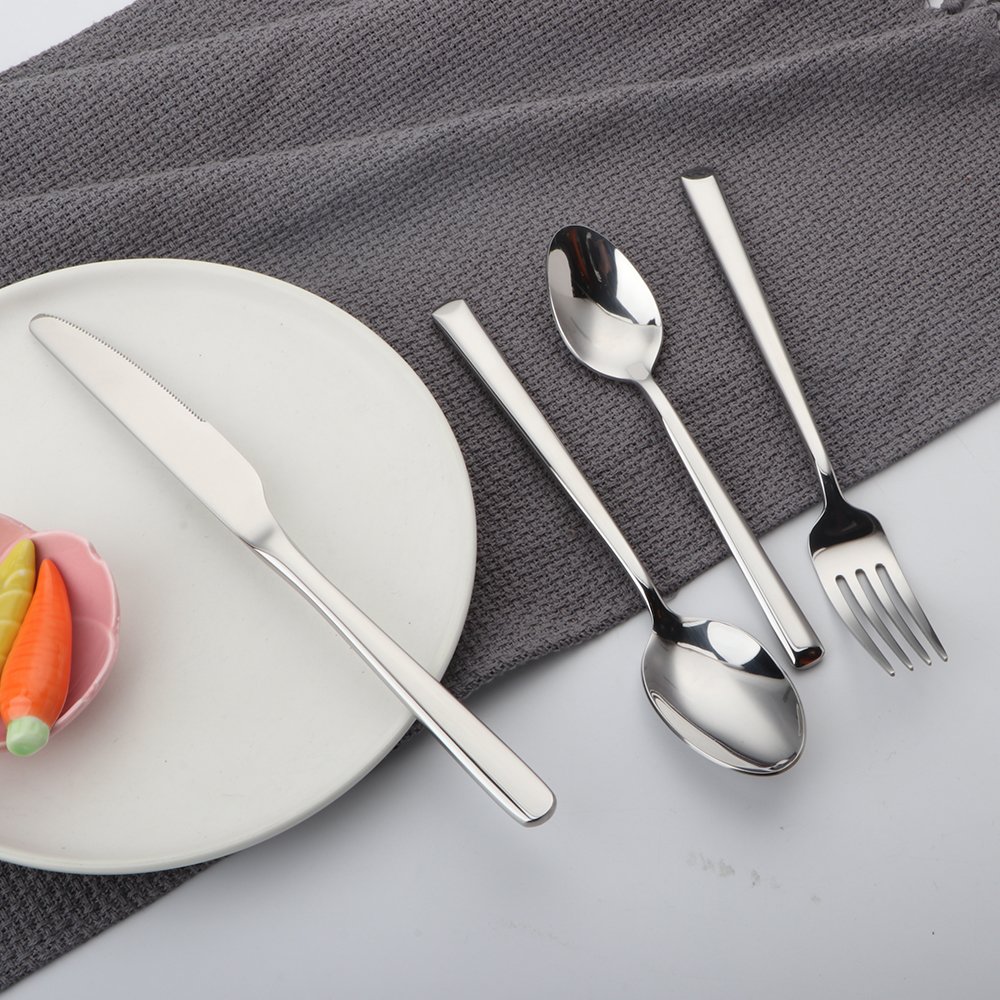
Is Stainless Steel Good for Forks?
Are you wondering if stainless steel is a good material for forks? Let’s explore why it’s the material of choice for many.
Stainless steel is an excellent material for forks due to its strength, resistance to corrosion, and ease of maintenance, making it an ideal choice for daily use and special occasions.
When it comes to forks, stainless steel consistently stands out as one of the best materials available. Here are some of the key reasons why stainless steel is favored for making forks:
Durability and Strength
Stainless steel is renowned for its toughness. It can withstand daily use without bending or breaking, making it perfect for forks. Unlike plastic or other materials, stainless steel doesn’t crack under pressure, ensuring that your forks last for many years.
Resistance to Corrosion and Staining
Stainless steel is highly resistant to rust and stains, which is essential for forks that come into contact with moisture and food acids. This resistance ensures that stainless steel forks maintain their shiny, clean appearance even after repeated use.
Versatility
Not only is stainless steel durable and easy to maintain, but it also complements a wide range of table settings, from casual to elegant. Whether you’re hosting a formal dinner or enjoying a family meal, stainless steel forks fit seamlessly into any occasion.
Maintenance
One of the most convenient aspects of stainless steel forks is their ease of maintenance. They are dishwasher safe and require little care to maintain their finish. Simply wash them after use, and they’ll continue to look great.
| Feature | Stainless Steel | Other Materials |
|---|---|---|
| Durability | High | Low to Medium |
| Resistance to Corrosion | Excellent | Poor |
| Maintenance | Easy, Dishwasher-Safe | High Maintenance Required |
| Versatility | High | Medium |
What is the Correct Salad Fork?
Choosing the right fork for your salad can make all the difference. What exactly makes a salad fork the “correct” choice?
A salad fork is typically smaller than a dinner fork, with a narrower design that’s perfect for cutting and lifting bite-sized pieces of salad ingredients.
Salad forks are designed with a specific purpose in mind, and their unique characteristics set them apart from other types of forks. Here’s a deeper look into what makes the “correct” salad fork:
Size and Shape
Salad forks are usually smaller than dinner forks, with a width of about 6 to 7 inches. The prongs are also slightly shorter and more rounded, making it easier to pick up small pieces of salad without stabbing through the ingredients. The smaller size allows for a more delicate approach to eating, perfect for leafy greens or finely chopped vegetables.
Material Considerations
For a truly functional salad fork, material matters. Stainless steel is often the preferred choice due to its strength and corrosion resistance. It’s also important for the fork to be sturdy enough to handle a variety of salad textures, from tender lettuce to crispy croutons.
Design
Salad forks often feature a more elegant design, as they are typically used in formal dining settings. The simplicity of a stainless steel salad fork pairs beautifully with all types of tableware, adding to its versatility and aesthetic appeal.
How to Identify the Correct Salad Fork
The best way to identify the correct salad fork is by its size and shape. Look for a fork that’s smaller than your dinner forks, with shorter tines and a narrow profile. Stainless steel is a great choice because it offers durability and style.
| Feature | Salad Fork | Dinner Fork |
|---|---|---|
| Size | Smaller, 6-7 inches | Larger, 7-8 inches |
| Tine Length | Shorter | Longer |
| Design | Elegant, simple | More robust |
| Material Preference | Stainless Steel | Stainless Steel or Others |
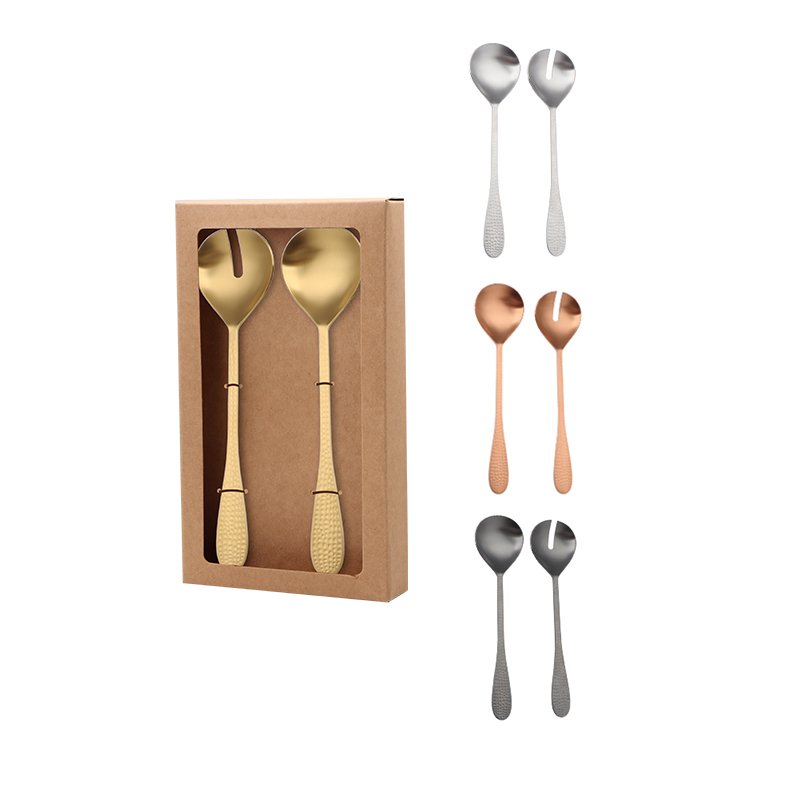
Why Are Forks Made From Stainless Steel?
Why are forks predominantly made from stainless steel? It’s more than just a trend—there are practical reasons behind it.
Forks are made from stainless steel because of its unmatched strength, corrosion resistance, and durability, making it the ideal choice for long-lasting and low-maintenance cutlery.
Stainless steel is the material of choice for forks for several reasons, all of which combine to provide the best balance of functionality, durability, and appearance. Let’s break it down:
Durability and Strength
Stainless steel forks are made to last. Unlike other materials, such as plastic or wood, which can easily break or wear down, stainless steel forks can withstand daily use without losing their shape or functionality. Whether you’re cutting through a tough piece of meat or gently twirling some pasta, stainless steel provides the strength needed.
Corrosion and Rust Resistance
One of the primary reasons stainless steel is used in fork manufacturing is its resistance to corrosion. Food acids, moisture, and exposure to air won’t cause stainless steel to rust or stain, ensuring that your forks stay looking new for longer.
Low Maintenance
Another reason for the popularity of stainless steel forks is their low maintenance. They don’t require special care or expensive cleaners. You can throw them in the dishwasher, and they’ll come out looking great without the need for constant polishing.
Versatility and Style
Stainless steel also offers an elegant aesthetic. It pairs well with any type of tableware, from casual settings to fine dining. The material’s sleek, polished finish makes it a preferred choice for both everyday use and special occasions.
| Property | Stainless Steel | Plastic | Wood |
|---|---|---|---|
| Durability | High | Low | Medium |
| Resistance to Corrosion | Excellent | Poor | Poor |
| Maintenance | Low Maintenance | High Maintenance | High Maintenance |
| Aesthetic Appeal | Sleek, Modern | Casual | Rustic |
Why Stainless Steel is Ideal for Salad Forks?
Stainless steel is known for its strength, resistance to rust, and sleek look, making it a perfect choice for salad forks.
Stainless steel provides durability, rust resistance, and an aesthetic finish, ensuring your salad forks remain pristine and functional for a long time.
Stainless steel is not only durable but also easy to clean, making it ideal for everyday use. The material resists stains and discoloration, which is crucial for salad forks that come into contact with acidic dressings and oils. Unlike wood or plastic, stainless steel won’t absorb flavors or odors, ensuring your forks remain fresh after every use.
How to Choose the Best Stainless Salad Fork for Your Needs?
When choosing a stainless steel salad fork, consider the design, handle, and weight of the fork.
Choose a salad fork based on your dining style, whether you prefer a heavier, more balanced design or a sleek, minimalist look.
The weight of the salad fork can impact how easy it is to use. A heavier fork may provide better control, while a lighter fork may allow for more delicate handling. The handle design also plays a role in the comfort of use. Some handles are ergonomic and easier to hold, while others are decorative and add a touch of elegance to your table setting.
What Makes Stainless Steel Salad Forks Superior to Other Materials?
While other materials may look nice, stainless steel wins in terms of durability and long-term use.
Stainless steel outperforms materials like plastic, wood, and aluminum by resisting wear, rust, and corrosion, ensuring long-term use without losing its shine.
Unlike plastic forks that can bend or break, stainless steel salad forks keep their shape and quality. Wood can stain and requires more care, while stainless steel is low maintenance. Additionally, aluminum forks can corrode, especially when exposed to acidic foods, but stainless steel can handle those conditions with ease.
Can Stainless Salad Forks Be Used for More Than Just Salads?
While they are made for salads, stainless steel forks are versatile enough to use with many different dishes.
Stainless steel salad forks are great for other light dishes, such as appetizers, fruits, and small desserts, making them a versatile addition to your flatware collection.
The versatility of stainless salad forks makes them a great choice for anyone looking to simplify their dining experience. They can be used for a variety of dishes, from pasta to small entrees, adding a touch of elegance to your meal presentation. They are lightweight and easy to handle, which makes them perfect for smaller, more delicate foods.
Is Stainless Steel Good for Forks?
Stainless steel is considered one of the best materials for making forks due to its combination of durability, resistance to rust, and aesthetic appeal.
Stainless steel is ideal for forks as it resists corrosion, maintains its appearance, and doesn’t affect the taste of food, unlike some cheaper metals.
Stainless steel forks are both durable and beautiful, ensuring they last a long time. Their ability to resist stains and rust makes them perfect for everyday use, whether at home or for a special occasion. Additionally, stainless steel forks are dishwasher safe, making them low maintenance compared to silver-plated forks.
What’s the Difference Between a Salad Fork and a Regular Fork?
Salad forks are smaller and often designed for more delicate tasks, unlike regular forks which are used for larger portions and a wider range of dishes.
A salad fork typically has a shorter handle and narrower tines compared to a regular dinner fork, making it better suited for salads and smaller bites.
The smaller size of the salad fork helps with precision, especially when eating things like leafy greens. Regular forks are usually designed for heartier meals and can be larger and more robust. This design difference makes salad forks more suited for lighter meals and ensures better handling for delicate ingredients such as tomatoes or small cucumber slices.
What Kind of Fork Should You Use for Salad?
Salad forks are specifically designed to make eating salads more efficient and enjoyable, with factors like size and tines making them ideal for leafy greens.
A salad fork is usually smaller than a dinner fork, offering more control for picking up delicate salad ingredients, especially when paired with a salad knife or salad server.
While you can use a regular dinner fork, the salad fork is designed to help you eat your salad better, especially with smaller、more delicate items. The smaller size makes it easier to handle leafy greens and lighter vegetables. When paired with a salad knife,a salad fork is even more efficient for cutting and eating your salad in one easy motion.
What is the Point of a Chilled Salad Fork?
Chilled salad forks are often used for serving cold salads,providing a pleasant eating experience and preventing the salad from warming up too quickly.
Chilled salad forks help maintain the cold temperature of your salad,keeping the dish fresh and crisp for longer,making them ideal for summer meals or cold dishes.
The cooling effect of a chilled fork can make a big difference in enjoying your salad,especially when paired with a salad server.These forks are often placed in the refrigerator prior to use.They help keep salads,especially those with fresh ingredients, at the ideal temperature, ensuring a refreshing and satisfying meal.
Can Stainless Steel Forks Rust?
While stainless steel is highly resistant to rust,it can tarnish or rust if not cared for properly.
Stainless steel forks rarely rust unless exposed to harsh conditions. Regular cleaning and proper storage can prevent rusting and maintain their shiny appearance.
While stainless steel is resistant to rust, it can be discolor if exposed to moisture or certain chemicals. It’s best to wash and dry your forks right after using them. Storing them in a dry, clean place will also help prevent any rust from forming. With一little care,your stainless steel salad forks will remain rust-free for years.
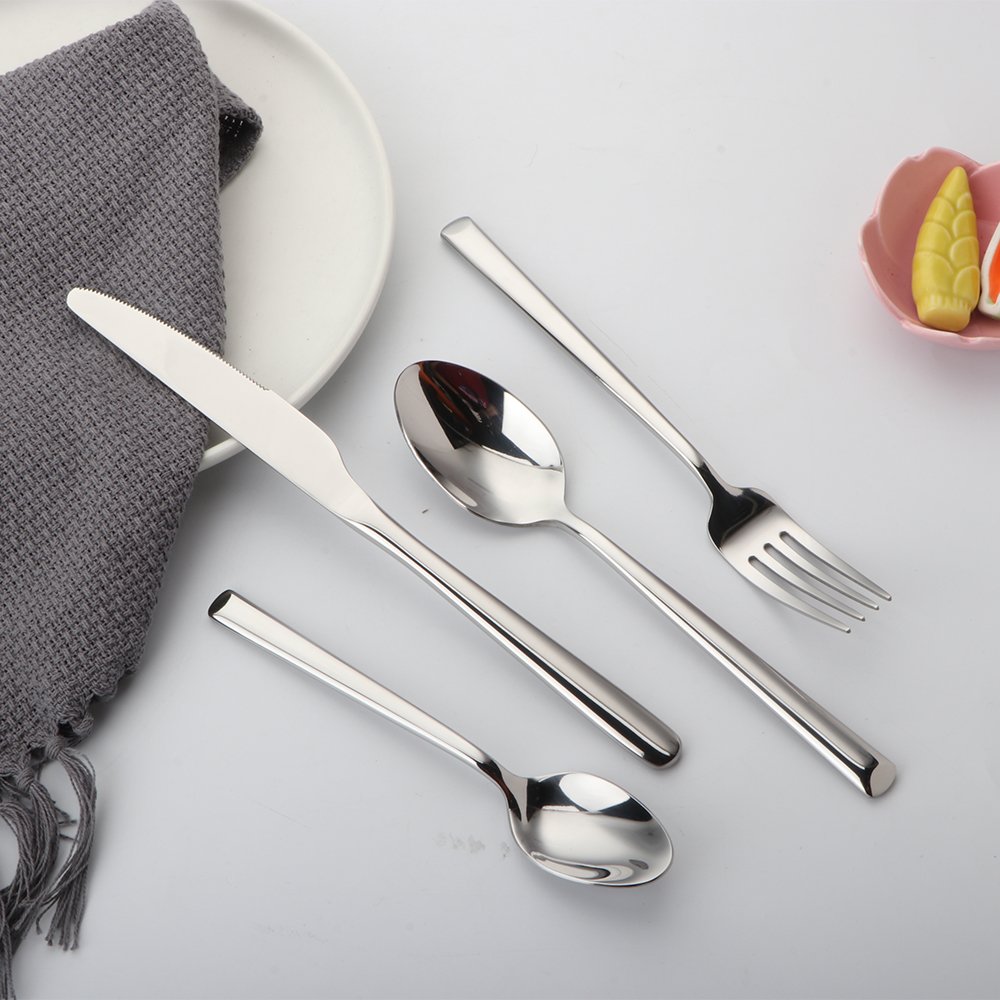
What is Better, Silver-Plated or Stainless Steel?
When deciding between silver-plated and stainless steel,think about cost, maintenance, and durability.
Stainless steel is more durable and easier to maintain, while silver-plated flatware requires more care but offers a more luxurious appearance.
Silver-plated flatware needs to be polished to keep it looking good, while stainless steel only needs to be cleaned occasionally. For everyday use, stainless steel is usually the better choice, while silver-plated forks are great for special occasions. Silver-plated forks can tarnish over time and may need to be replated, whereas stainless steel forks will keep looking good without much effort.
Can You Eat Salad with a Fork?
Yes, a fork is the primary utensil used for eating salad, especially for leafy greens and chopped vegetables.
A fork allows you to easily pick up salad ingredients, and a salad fork’s smaller size helps with delicate greens and toppings.
While a salad fork is the best choice, other utensils like salad knives or servers may also be helpful for cutting larger items or serving. A fork is great for picking up smaller, delicate pieces, allowing you to enjoy the freshness and crunch of your salad without any trouble.
Why is the Salad Fork Shorter?
Salad forks are shorter to make them easier to use with smaller portions and delicate ingredients.
The shorter length of the salad fork allows for greater control when picking up smaller, bite-sized salad pieces.
The size and design of salad forks make them ideal for salads and lighter meals. They are also easier to handle in formal settings, especially when paired with a salad knife or server for a more complete dining experience. The smaller size allows for a more refined and comfortable eating experience, especially in formal dining situations.
Stainless steel salad forks are durable, beautiful, and versatile, making them a must-have for any dining table. Choose the right ones for you!




